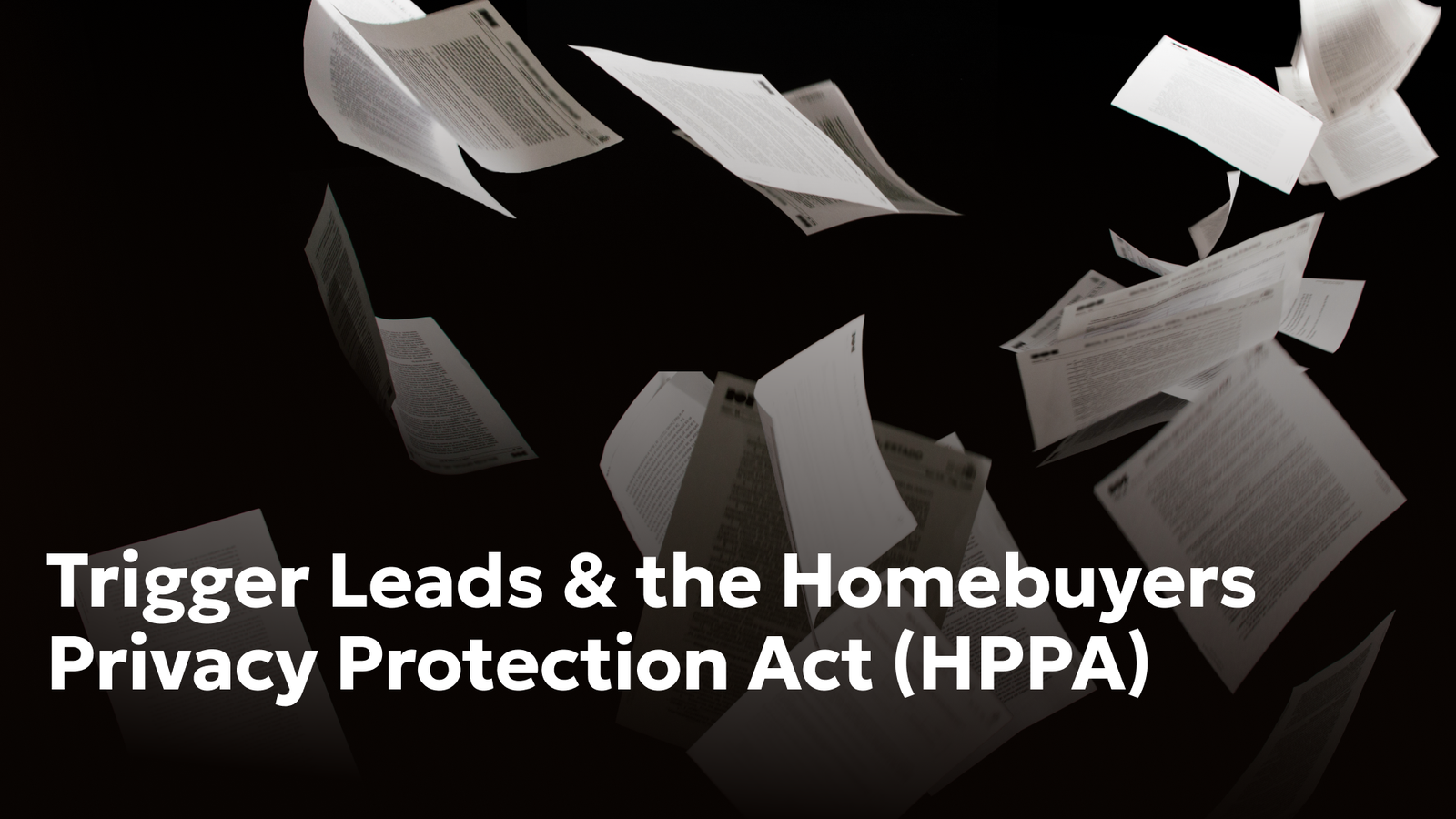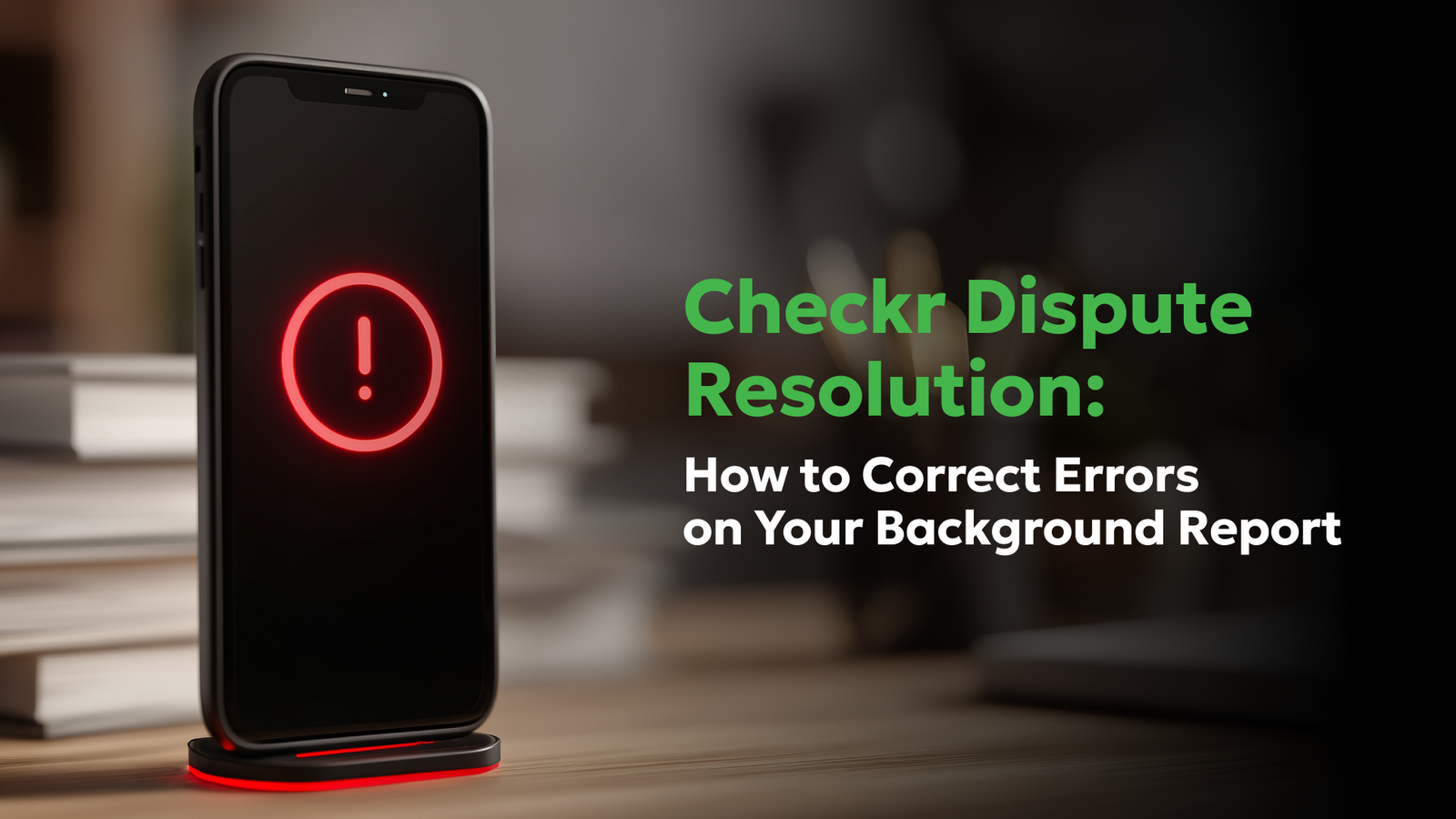How to Dispute a Background Check
- Blog
- All about FCRA
How to Dispute a Background Check

Everything you need to know to dispute a background check. Errors are more common than you think. Know what to do!
Background checks have become a standard part of many momentous life events. New employers, new landlords, and new schools all use them to make sure they are giving access to trustworthy people. But too often, errors in background check reports have devastating results for people whose backgrounds get misreported. Here’s what to do.
Background checks have become a regular and expected part of applying for a job, renting an apartment, volunteering somewhere, or obtaining a professional license. The digitization of records and the speed at which information can be transmitted worldwide has made the process cheaper, quicker, and easier.
But one of the hazards of doing things more cheaply, more quickly, and more easily is that mistakes happen. And when background check reports contain mistakes, the consequences are enormous: a lost job, a lost opportunity, a damaged reputation, a lost home, lost income, mental health damage, and more.
The background check lawyers at Consumer Attorneys represent people who have faced those consequences and fought back. Here’s what they want you to know.
Types of Incorrect Information on a Background Check
There are lots of errors that can be, and too often are, included on a background check report.
Personal Information
Personal information errors are common on background checks. These mistakes can include incorrect names, addresses, social security numbers, or birth dates. These inaccuracies can lead to confusion and misidentification, which leads to someone else’s information being included in your background check.
Criminal History Information
Mistakes in criminal history information are among the most damaging errors that can appear on a background check. These errors can range from incorrect criminal records associated with your name, outdated information that should have been expunged, or wholly inaccurate charges. Such errors can severely impact your job prospects, housing applications, and overall reputation.
Credit Information
Credit information errors can affect your financial reputation and job opportunities. These mistakes might include incorrect credit scores, erroneous credit accounts, or outdated information that no longer reflects your credit status. Ensuring the accuracy of your credit information is crucial for maintaining a healthy financial profile.
Any error - from a misspelled name to a misplaced comma to a false felony conviction - can be hugely damaging.
Process For Disputing a Failed Background Check
A federal law called the Fair Credit Reporting Act (FCRA) allows people to dispute inaccuracies and imparts responsibilities to background check companies regarding the handling of those disputes.
Find Errors in Your Background Check
The first step in disputing a failed background check is requesting the report from the employer or entity that requested it or the background check company itself. Then, carefully review it for any inaccuracies.
File a Dispute with the Screening Company
Once you have identified errors, the next step is to file a dispute with the screening company that created the report. You can typically find contact information for the screening company on the background check report itself. Write a detailed background check dispute letter that includes:
- Your full name and contact information
- A clear explanation of the errors found
- Supporting documentation that proves the information is incorrect
- A request for the screening company to correct the inaccuracies
Send this dispute background check report via certified U.S. mail to ensure that the background check company receives it, to preserve your rights to file a lawsuit later on, and to have document evidence when the background check company received it.
Disputing Errors in Credit Information
If the errors on your background check pertain to your credit information, you must dispute these inaccuracies with the consumer reporting agencies (CRAs). The three major CRAs—Equifax, Experian, and TransUnion—each have processes for disputing incorrect information.
To dispute inaccurate information on your background check with the credit bureaus:
- Obtain a copy of your credit report from each bureau.
- Identify the errors and gather supporting documentation.
- Submit a dispute via certified U.S. mail to each credit bureau.
The CRAs must investigate your dispute within 30 days and provide you with the results.
Correcting Public Records
In some cases, errors in a background check may stem from incorrect public records. For example, a criminal record that should have been expunged or an incorrect court record. To correct these types of errors:
- Identify the public record in question.
- Contact the court or government agency responsible for the record.
- Provide evidence that the information is incorrect and request a correction.
This process can be time-consuming, but it is necessary. The background check companies look at your public records when compiling their reports. If the public records are inaccurate, then every future background check report will also be inaccurate.
When to Contact a Background Check Attorney
Engaging a background check lawyer as soon as you find a mistake on your background check is crucial. A background check attorney can help navigate the complex dispute process and ensure your rights are protected under the FCRA.
The Role of a Background Check Attorney
A background check lawyer specializes in consumer law and can provide valuable assistance in the background check dispute process. A lawyer can assess the errors in your background check and determine the best course of action for disputing them. An attorney can help craft a compelling and legally sound background check dispute letter to the screening company or credit bureaus. Lawyers can manage all communications with the screening company, credit bureaus, and public agencies, ensuring your dispute is taken seriously and processed promptly. If the screening company fails to correct the errors, your attorney can file a lawsuit on your behalf to seek damages for any harm caused by the inaccurate information.
Why Contact an Attorney Early?
Contacting a background check attorney early in the dispute process is beneficial for several reasons:
- Timely Corrections**: The sooner you involve a lawyer, the quicker they can begin working to correct the errors, minimizing the impact on your life.
- Expert Guidance**: An experienced attorney understands the intricacies of consumer law and the FCRA background check dispute process, ensuring that your dispute is handled correctly from the start.
- Stress Reduction. We mentioned earlier that the damage of having an inaccurate background check report can include damage to your mental health. Dealing with a background check dispute can be stressful and time-consuming. Having a lawyer manage the process lets you focus on other aspects of your life while knowing your dispute is in capable hands.
Conclusion
Disputing a background check can be time-consuming and daunting, but it is absolutely essential for protecting your reputation, job prospects, and financial standing. Remember, you don’t have to navigate this process alone. The consumer law attorneys at Consumer Attorneys are here to help. Whether you need assistance drafting a dispute letter or require representation in a lawsuit, contacting us early can make all the difference.
Frequently Asked Questions
To dispute wrong background check information, obtain a copy of the background check report and identify the inaccuracies. Prepare a clear and concise written dispute letter for the background check company, including any supporting documentation proving the errors. Send the dispute letter and supporting documents to the background check company via certified U.S. Mail. This proves when you sent the letter and prevents you from waiving any future rights to take legal action against the background check company. Keep records of all communications and follow up regularly. It’s also never too early to contact a consumer protection lawyer for guidance, and support, and to protect your rights.
The time it takes to resolve a background check dispute can vary, but the Fair Credit Reporting Act (FCRA) requires that consumer reporting agencies investigate disputes within 30 days. During this period, the background check company must review the evidence you provide in the dispute and contact the source of the information to verify its accuracy. Sometimes, the process may extend to 45 days if additional information is required. It’s crucial to stay in touch with the reporting agency, provide any requested documents promptly, and track the progress of your dispute to ensure a timely resolution. An attorney can help you too.
First, to dispute inaccuracies in a criminal background check, request a copy of the report to identify the specific errors. Write a formal dispute letter to the background check company, detailing the inaccuracies and providing evidence, such as court records or identity documents, that prove the information is incorrect. Send this letter via certified U.S. mail so you have a record of when the company receives it. Additionally, contact the source of the incorrect information, such as the courthouse or police department, to correct their records. Monitor the status of your dispute and follow up regularly to ensure they correct the inaccuracies.
When you dispute a background check, the background check company must investigate your claim within 30 days. It will contact the source of the disputed information to verify its accuracy. If they find the information to be incorrect, the company must correct the record and provide you with a revised copy of the report. They must also send the new and newly corrected report to any employers or organizations that received the incorrect report in the past two years. If the dispute is not resolved in your favor, you can add a statement to your report explaining the dispute, which will be included in future background checks.


Daniel Cohen is the Founder of Consumer Attorneys. Daniel manages the firm’s branding, marketing, client intake and business development efforts. Since 2017, he is a member of the National Association of Consumer Advocates and the National Consumer Law Center. Mr. Cohen is a nationally-recognized practitioner of consumer protection law. He has a we... Read more
Related Articles




R
ONGS™You pay nothing. The law makes them pay.







